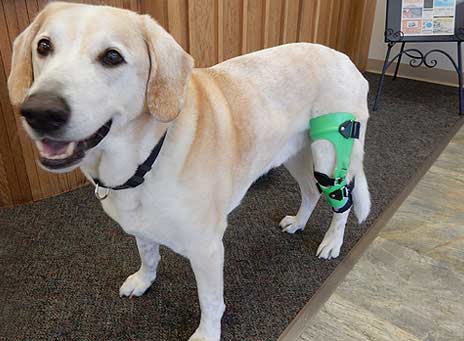It’s hard to tell no to your pet when it looks into your eyes deeply minutes before going to sleep and beds down next to you every night. In fact, few things are more pleasant than sleeping with your dog. It makes you feel more related to it and allows you to fall asleep easier. But is it good for you and your dog to sleep side by side?
Connect with a verified veterinarian in minutes. Licensed vets are available 24/7 to answer your questions. No need to worry about your furry family member.
Pet owners for a long time have been advised not to sleep in bed with their beloved pupils. It used to be so as it might contribute to your sleep interruption or have a negative impact on your dog’s behavior. Not to mention exterminating bed bugs and other unwanted visitors your dog may bring into your bedroom.
However, there is good news for you if you can’t imagine spending a night alone. Next to the drawbacks, there are significant benefits of allowing your four-legged friend to fall asleep with you, so get to know how it affects both – you and your dog.
How It Affects the Quality of Your Sleep?
Co-sleeping with a dog provides plenty of people with better sleep quality. Some dog owners even claim to prefer going to bed with their pet instead of a human being. Even though it might be uncomfortable from time to time, especially if your dog is of a bigger size, it can improve your sleep quality and make you more well-rested.
However, it’s a highly individual matter, and it depends on your dog’s breed and behavior. If your pupil is overactive, it can make your sleep less comfortable or even scratch you during the night.
On a positive note, sleeping with a dog can make you feel safe and sound. It can help you in fighting insomnia and achieve a deep sleep in the REM phase. What’s more, many people who have PTSD claim to have fewer nightmares after co-sleeping with their pupils. All of that leads to general improvement in your health and wellness.
Positive Impact on Your Health
Sleeping with a dog releases oxytocin in a pet owner’s brain. Oxytocin is a well-known hormone of happiness and love. Not only does it make us feel happier, but we also feel better physically.
The most significant health benefit is that sleeping with a dog reduces stress and anxiety level. What’s more, as oxytocin is released during physical contact with your dog, the more you cuddle with it, the better. Allowing your dog to be cuddled in bed can also lower your blood pressure and cholesterol level in the long term.

Review symptoms, medications & behavior to keep your pets healthy with a Vet Online in just minutes.
Ask a Vet Live NowWhen to Say No to Your Dog?
If it’s so beneficial, why is it commonly advised not to sleep with a dog? The reason for it lies mostly in the impact it can have on your dog’s behavior. If your dog is an adult, healthy pet without any behavioral problems, there is nothing wrong with sharing a bedroom. However, there are many cases in which sleeping together can guide you straight to an animal behaviorist. What are the rules, then?
Firstly, you should never allow a young puppy to jump into your bed. If you’re trying to bring up a well-behaved dog, sleeping together in the early stages of its life can lead to aggressive behavior in the future.
Secondly, there’s a high probability that if you’ve just adopted a dog, sleeping together might cause separation anxiety, and you’d never have a possibility to sleep alone again or even go out without its despair. There are also claims that dogs may start to feel dominance over their owners if they’re allowed to sleep in their bedroom too frequently.
Hygiene of Co-Sleeping
The most significant drawbacks of sharing a bed with your dog are hygiene-related problems. Your dog has various bacteria and parasites that can be easily transferred to a human at night. Those bacteria can negatively influence our immune system that might lead to several infections and diseases.
Additionally, you need to be cautious if you have any allergies. Your dog carries various allergens such as dust on its fur that can be easily transferred to you. What’s more, if you’re allergic, even its fur can make your eyes red and your nose blocked.
That’s why if you want to sleep with your dog, you need to pay extreme attention to its hygiene and conduct several controls at the vet.
Conclusions
Despite the drawbacks, the advantages of co-sleeping with your dog can overshadow the problems it can cause. We love to wake up next to our pupils, and they love it as well. If you’ve already decided to sleep with your beloved companion, you probably know whether a warm, secure sleep is worth the possible disturbances.
However, if you’re yet to invite the dog to your bedroom, keep in mind that you need to be cautious when sleeping with your pet. You have to ensure that all the hygiene rules are maintained, and your dog doesn’t show any behavioral dysfunctions. If you’re certain it won’t cause any damage to your health and your pet bringing up, sleeping together might be nothing more than be
Connect with a verified veterinarian in minutes. Licensed vets are available 24/7 to answer your questions. No need to worry about your furry family member.

Tom
Tom has always loved to write since he was little - he wanted to be either a writer or a veterinary doctor, but he ended up being a professional writer while most of his works are based on animals. He was born in San Francisco but later moved to Texas to continue his job as a writer. He graduated from the University of San Francisco where he studied biotechnology. He is happily married and a soon to be father!
Review symptoms, medications & behavior to keep your pets healthy with a Vet Online in just minutes.
Ask a Vet Live Now



